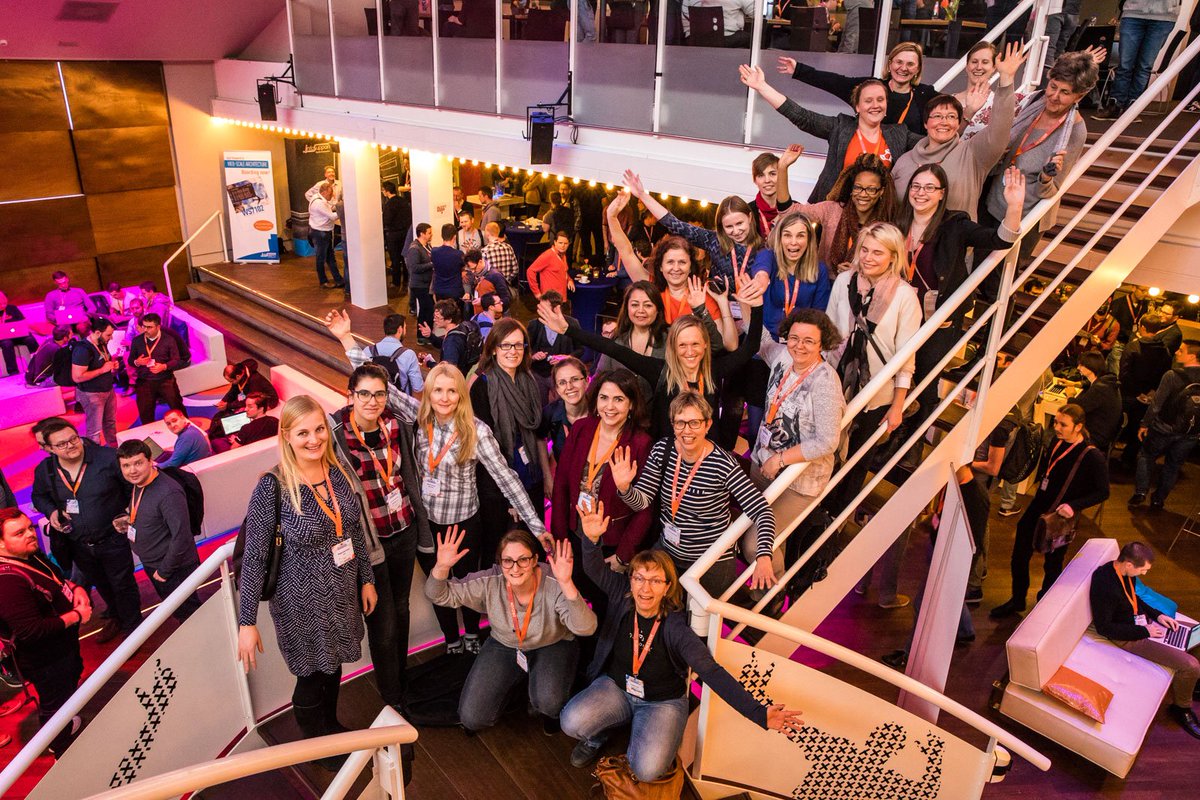We care deeply about making Domain-Driven Design Europe a safe and welcoming space for everyone.
As with everything, this involves making many trade-offs. We want to get better at prioritising the efforts that have the most impact on safety, comfort, diversity, and accessibility. Below is our work-in-progress. It includes the things we are doing, the things we haven't decided on yet, and the things we decided not to do (for now).
We need your help! Your feedback will help us prioritise. If you are affected by these efforts, if you have relevant experiences, or if you are simply a bystander who cares, let us know what you would have us do differently.
Please send your ideas or concerns to contact@dddeurope.com. We treat all submissions confidentially.
Doing
- Code of Conduct (CoC). We feature it on our website, ask speakers to agree when submitting proposals, and mention it in the opening speech of the conference.
- Contact person for concerns or CoC violations.
- Professional security staff at the venue.
- Language. We encourage participants to speak English, even if you share another language with your conversation partners. This makes it easier for others to join.
- Speaker diversity. We put a lot of effort in curating the content of the conference, and do additional research efforts to find relevant speakers from underrepresented groups.
- Presentation support. We offer support to speakers who are new to public speaking, or who are developing new content.
- Quiet Room. Attendees can retreat here, and we ask others to respect it.
- Gender-inclusive language. We attempt to use gender-neutral language in all our communication. Let us know when we make mistakes.
- Wheelchair accessibility. The venue provides this, as it is required by Dutch law.
- Reserved accessible seating
- Audio loops. We can provide this upon request.
- Bring your assistant. Contact us for info.
- Gender-inclusive bathrooms.
- Childcare. We will have professional child care providers at the venue. This is a free service, but we charge a €10 registration fee to avoid false positives. We can refund it after the event upon request. Register or contact us for info.
- Dietary requirements. We inquire about dietary requirements during the registration process. We notice that often the vegetarian and vegan food options are eaten by participants with no dietary requirements. Therefore we always order a much larger quantity than we strictly require. Common requirements, such as gluten-free, can be obtained by asking the catering staff.
- Volunteers. If you live in Amsterdam, you can volunteer to help out during the conference, and get to see a number of sessions for free.
Under consideration (or upon request)
- Hearing loss support:
- Live Captioning. This is also useful to non-native English speakers.
- Transcriptions for published videos
- Instructing staff. We hire a lot of staff through suppliers (catering, hospitality, security, ...) We're considering what and how to teach them about these efforts.
- Discounts or scholarships for underrepresented groups. At the moment we have no program, but do get in touch if you feel you should be a beneficiary of this.
- Custom pronouns on badges.
- Web Accessibility Guidelines
Not doing (for now)
- Student discounts or scholarships. The conference specifically aims at people with industry experience. We feel it would not provide much value to students.
- Speaker quota. Although we aim for a large representation of women and PoC, we are not committing to a 50% share at this time. We believe that speaker quota for general tech conferences are generally a good idea, but very hard to implement for a niche conference such as DDDEU.
- Host an underrepresented group sub-conference.
- Blind CFP selection process. We feel a title and an abstract alone are not sufficient to determine whether the presentation is suitable for the conference. We research candidate speakers by watching videos of their earlier talks, reading their blogs, having a conversation upfront... Therefore blind selection is not possible.
- Sign Language Interpreter. There are many different sign languages, making this impractical. Audio loops and live captioning are better solutions.
 #WomenInTech picture taken at Domain-Driven Design Europe 2017
#WomenInTech picture taken at Domain-Driven Design Europe 2017
 #WomenInTech picture taken at Domain-Driven Design Europe 2017
#WomenInTech picture taken at Domain-Driven Design Europe 2017